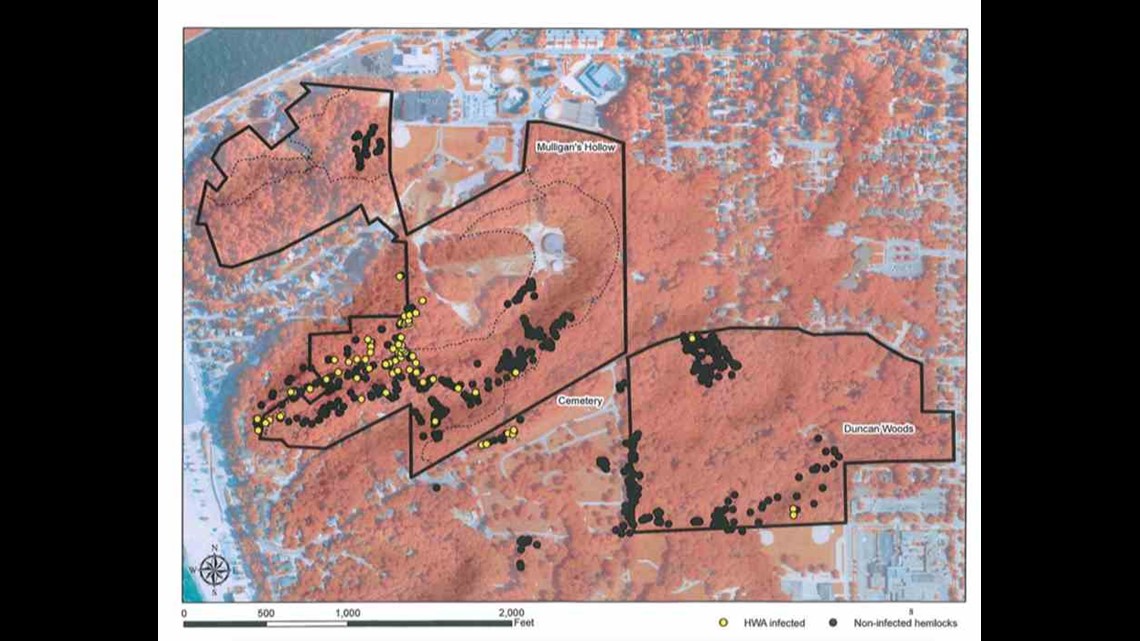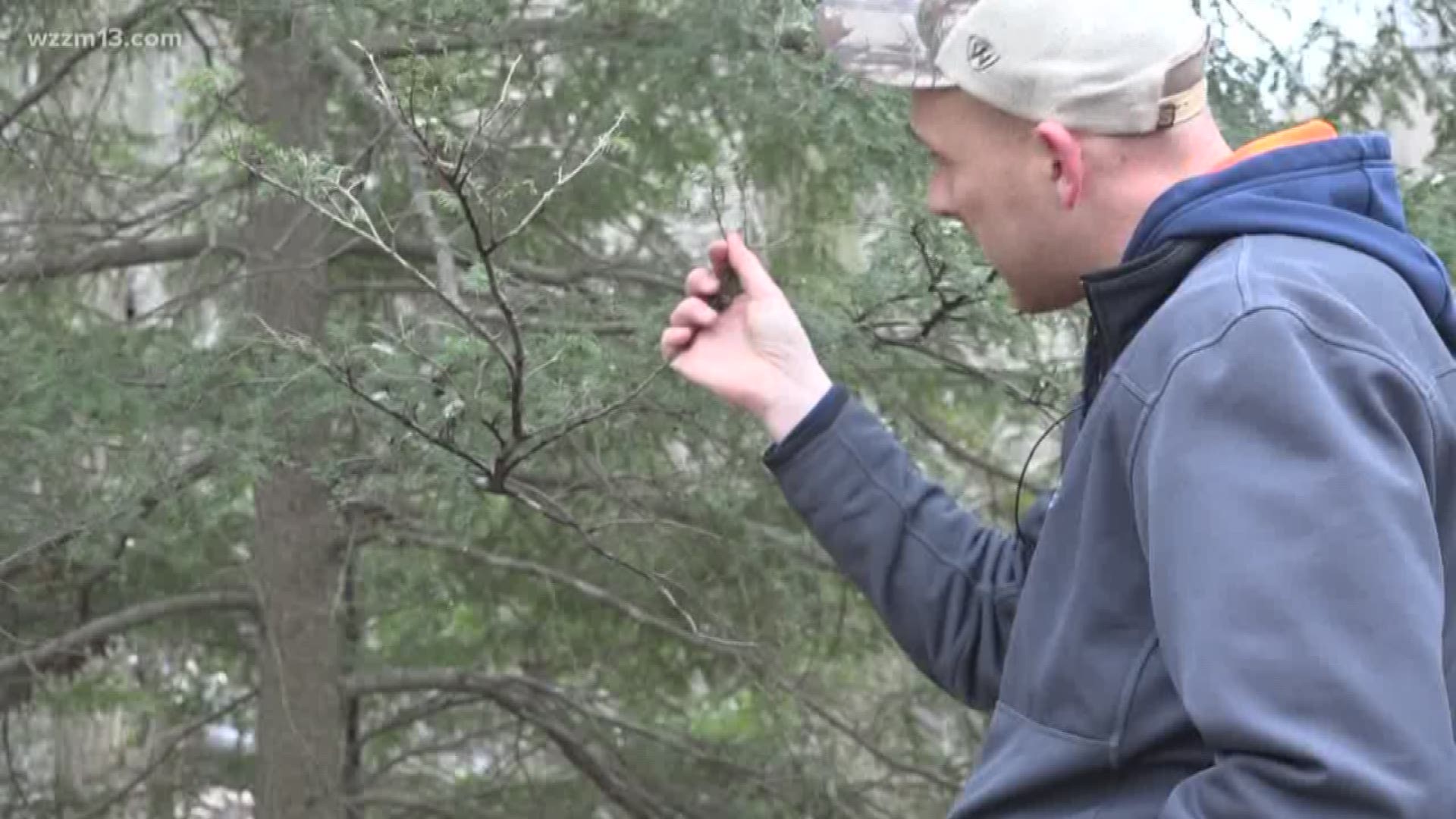GRAND HAVEN, Mich. (GRAND HAVEN TRIBUNE) - On Monday night, conservation experts presented options to the City Council on how to treat the hemlock woolly adelgid (HWA) infestation that has taken a toll on swaths of evergreens at Duncan Memorial Park and Mulligan’s Hollow.
Treatment options are costly, but city officials are hoping to act quickly to limit the spread of the disease that feeds on sap from hemlock shoots and branches, leading to the trees’ demise.
Larvae of the species, known as “crawlers,” are currently emerging on the trees, which officials say makes spring a time of significant risk for spreading the disease by human contact. Vectors that spread the pest include wind, birds, deer, dogs and people.
You can spot an infected tree by looking for white, woolly masses attached to the tree at the base of the needle. Eastern hemlock trees are identified by flat needles with two white stripes on their undersides.
Alexandra Locher, a professor of forestry at Grand Valley State University, and her students have studied the spread of HWA in Grand Haven in recent years. A map Locher showed the council revealed numerous yellow dots representing infected trees, which appeared in the vicinity of hiking trails at the city parks. This suggests the infestation is being spread by human activity, she said.
Locher and her students are planning to conduct further inventory of Eastern hemlocks in Grand Haven this summer, she said, using satellite imagery to predict where the invasion could spread. HWA has already taken hold at 75 points along the West Michigan lakeshore, she said. There are known infestation areas in Oceana, Muskegon, Ottawa and Allegan counties.
Drew Rayner, who serves on the Ottawa Conservation District and a state HWA task force, presented pricing for treatment. The city has a range of options, including a one-year treatment using chemicals that could cost $30,000 to $240,000, or a five-year plan costing from $6,000 to $48,000 annually.
The Ottawa Conservation District has grant funding to assist with these treatments, Rayner said.
The first step is to trim trees to keep them from human contact, which the city will conduct this spring. Rayner said trees must be trimmed 8 feet from the trails to limit the spread of HWA.
Officials recommend people not hike elsewhere immediately after visiting Duncan Woods. Putting clothes in the dryer for 20 minutes will kill the parasites, Locher said.
In a memo to the City Council, city staffer Joe VanderStel, liaison for the city’s Environment & Natural Resources Commission, stressed the importance of the native evergreens, which are estimated to provide $1.5 million a year in ecosystem services, such as cleaning the air.
“The city stands to lose most of its majestic Eastern hemlock trees that have been in existence for hundreds of years,” VanderStel wrote. “These champion hemlocks enhance our community by controlling erosion in our critical dunes, support wildlife, beautify the city and stimulate our local economy.”
Dan Small, chairman of the Environment & Natural Resources Commission, said the silver lining with HWA is the ability to save trees already infected.
“This is one of the only pests that we can effectively treat,” he noted. “This is something that we can get on the front end of, and we can probably control it.”
Councilman Josh Brugger said he’s in favor of bringing a treatment solution to the council’s agenda soon.
Priorities for the city include providing public signage about HWA at public parks and preparing to inventory, then treat, hemlock trees at the parks this year.


►Make it easy to keep up to date with more stories like this. Download the 13 ON YOUR SIDE app now.
Have a news tip? Email news@13onyourside.com, visit our Facebook page or Twitter.

